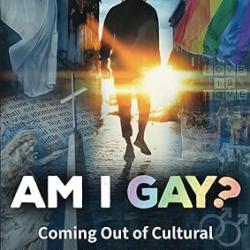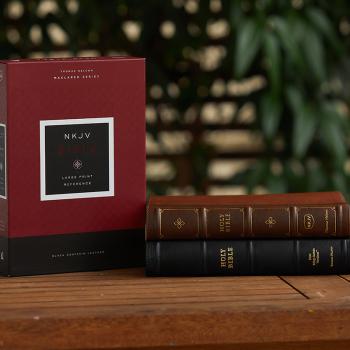The following is a guest article written by Gail Baker.
Enjoy!
—-
It shocked me that the ones I felt closest to– my husband, Steve, an agnostic with Greek Orthodox background, and my Jewish parents– had the hardest time adjusting to my Christian commitment. The more intense the bond, the greater was their sense of disorientation and betrayal. They simply didn’t see it coming. They knew only one facet of my personality—the familiar, verifiable, and taken-for-granted side. No one should ever presume to know someone through and through, especially a loved one.
To their credit, they understood that I hadn’t merely adopted a new set of beliefs but had had a dramatic encounter with the figure of Jesus. My change trampled with their bedrock sense of reality, eroding every notion of what they could feasibly control in life. Resenting the unknowable force that changed all the rules, it took them years before they could admit to faith having any beneficial effect on me, whatsoever.
Though I predicted my parents’ strong reaction, the level of toxic emotions that came to the surface shocked even me. The issues raised, though not religious as such, touched on control, loyalty, and cultural identity—all with deep, primal significance. Though Dad remained detached, Mom grieved. She described her initial shock and denial, then the pain of losing someone she hardly recognized. Wondering where she had gone wrong, she looked for someone or something to blame.
Over the next year, in a painstaking and steadfast process, Mom and I worked through our differences. She hoped that my study sessions with Orthodox Rabbi Hesh Epstein would bring me around, and, if that didn’t succeed, her beloved Christian son-in-law would surely prevail. Ultimately, she reached a level of acceptance when she saw that I had no intention of cutting off ties to the Jewish community.
Experiencing a legitimate distance from the severing of common ties, Mom may have intuited the unsettling half-truth that I had transitioned to a realm that didn’t include her. In truth, I was more humanly accessible than ever before. I can compare this to what I felt, years later, when she lay dying in hospice care. As she disengaged from this world to prepare for the next, I felt a combination of rage and sorrow—made all the worse because I couldn’t direct it towards her. Through no fault of her own, she was deserting me.
Knowing as I do of Mom’s subsequent spiritual journey, I discern subterranean forces at play. She both envied and feared my faith. I had examined my doubts more seriously than she had examined the possibility of belief. In spiritual parlance, she stood “under conviction” because of unconscious doubt.
Because Steve disbelieves as strongly as I believe, we both feel a separation. Though I have traveled a distance in his secular shoes, he has no way of fathoming mine. When on the rare occasion we discuss religion, I become tongue-tied and unable to articulate arguments I’ve long since resolved. No doubt, I overly identify with his skepticism. I resemble Walt Whitman who said, “When I undertake to tell the best, I find I cannot. My tongue is ineffectual on its pivots. My breath will not be obedient to its organs, I become a dumb man.”
Yet, words, even at their best, would likely fall on unhearing ears. Faith, an inside job, remains inaccessible through reason or logic. An ineffable sort of knowing exists among those of us who’ve been tapped on the shoulder and named by God. Pascal, the seventeenth-century French mathematician and philosopher wrote, “The heart has its reasons that reason cannot know.” In a similar vein, the Danish philosopher Soren Kierkegaard defined faith as “a subjective certainty about an objective uncertainty.”
This chasm reflects not so much a communication problem but an experiential one. When two people interpret the world in radically different ways, there is little common ground for discussion. George Lakoff, a cognitive linguist, explored the concept of frames—deep-seated mental structures that determine how we view the world. Because of the way these paradigms play out, people seeing the same set of facts can arrive at completely different conclusions.
For over thirty years, Steve has had little interest in conversation that even touches on the sacred. As the subject became taboo, I learned to compartmentalize the deepest parts of me. Locked tight in an inner sanctum, they remain inaccessible to the very person I love the most in this world–my husband.
With an awareness of the space every person needs for spiritual formation, I trust that the mystery and sincerity of my walk will penetrate as much from what I leave unsaid as said, and that my faith, lived out in contrast, will amplify in unique and provocative ways.
Steve and I give healthy voice to the spiritual loneliness that challenges our marriage. We counterbalance it by bolstering other areas of our relationship– ones imbued with their own sacredness. Our intimacy and the shared values of forty-four years reflect grace working its art in our marriage.
After reading a short piece I wrote about my spirituality, a male friend said, “This is the sexiest thing I’ve ever read.” I should have understood the dynamic. Steve knows that I’m engaged with an intimate relationship with another man. One night at the kitchen table, he looked at me with searching eyes and said, “At least in this world let me feel as though I’m your number one man.”
—
Gail Baker is a progressive Jewish convert to Christianity seeking representation for her memoir, A Congregation of One. In it, she recounts the dissonance and conflict associated with religious switching as well as the insights, techniques, and lifestyle changes that led her to congruence. You can visit her site at acongregationofone.com












